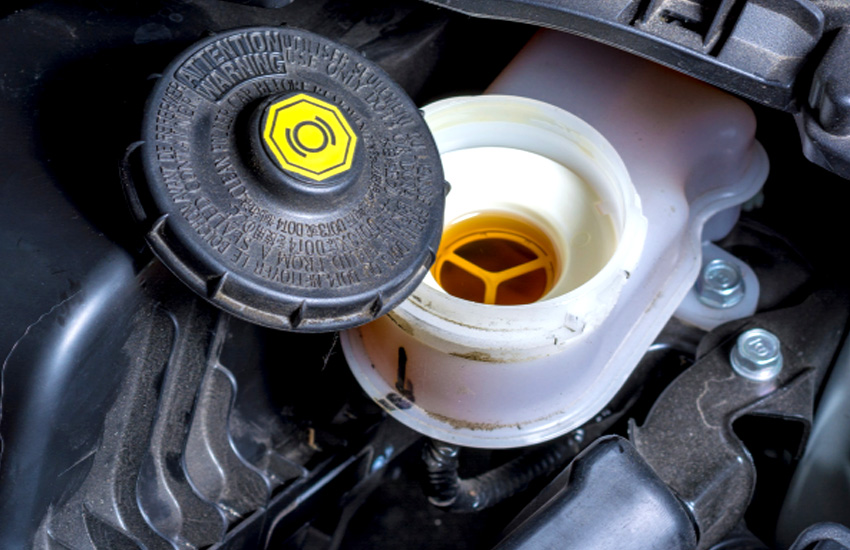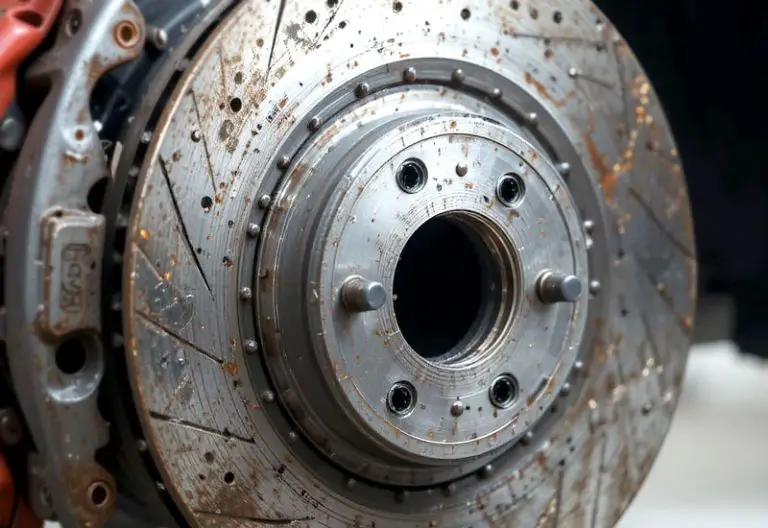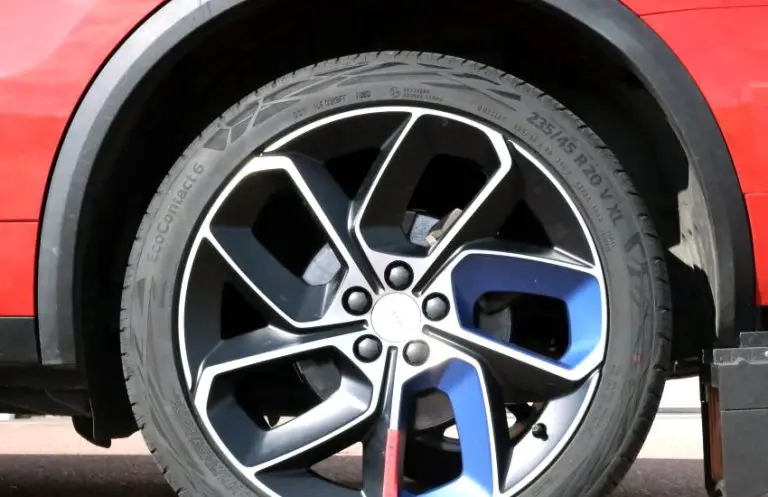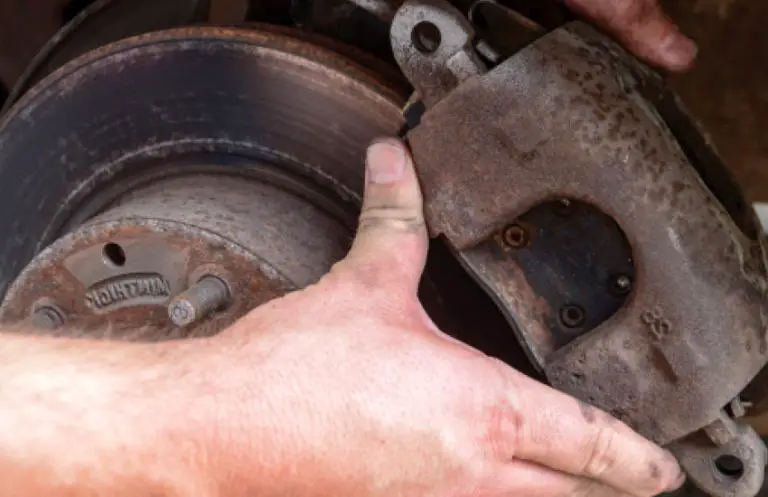When you’re working with vehicles, whether you’re maintaining your own car or repairing someone else’s, it’s easy to overlook some of the small things that can lead to big problems. One of these things is brake fluid, a crucial component for your car’s braking system.
While most people know that brake fluid plays a vital role in the performance of your vehicle, not everyone realizes how easily it can cause damage to surfaces like paint and plastics. If you’ve ever accidentally spilled brake fluid on your car, you might be wondering: Does brake fluid damage paint on plastics?
Brake fluid is designed to withstand high temperatures and exert pressure within the brake system. However, if it comes in contact with painted surfaces or plastics, it can lead to irreversible damage, causing paint to bubble, discolor, or peel away.
Understanding how brake fluid interacts with these materials can help prevent costly mistakes and ensure your vehicle’s aesthetic and structural integrity remain intact. In this blog post, we’ll explore how brake fluid affects paint on plastics, what steps you can take to protect your car, and how to properly clean up any spills before they cause long-term harm.

Understanding Brake Fluid and Its Composition
When discussing whether brake fluid damages paint on plastics, it’s important to first understand what brake fluid is and what it does. Brake fluid is a type of hydraulic fluid used in brake systems. It transfers force into pressure, amplifying braking force. There are different types of brake fluids, such as DOT3, DOT4, and DOT5, each with varying chemical compositions.
Brake fluid contains substances like glycols and polyglycol ethers, which are effective for their intended purpose but can be harmful to other materials. These chemicals are hygroscopic, meaning they absorb moisture from the air, which can lead to corrosion and degradation of materials they come into contact with, including certain plastics and paints.
The Chemical Nature of Brake Fluid
Brake fluid is designed to withstand high temperatures and pressures without boiling or breaking down. This makes it effective for braking systems but potentially harmful to other substances. The chemical composition of brake fluid allows it to interact with various materials in different ways.
Glycol-based brake fluids (DOT3 and DOT4) are particularly known for their aggressive nature towards paints and certain plastics. These fluids can soften and break down the paint, leading to discoloration, peeling, or complete removal of the paint layer. DOT5, which is silicone-based, is less aggressive but still capable of causing damage under certain conditions.
How Brake Fluid Interacts with Paint
When brake fluid comes into contact with paint, it can start a chemical reaction that breaks down the bonds holding the paint together. This reaction can cause the paint to lose its adhesion to the surface, resulting in peeling or flaking. The severity of the damage depends on the type of brake fluid and the duration of exposure.
On metal surfaces, this reaction can be quite rapid, leading to noticeable damage in a short period. With plastics, the effect can vary based on the type of plastic and the specific formulation of the paint used. Some plastics may be more resistant to the chemical action of brake fluid, while others might not withstand it as well.
Effects of Brake Fluid on Plastic Surfaces
To understand whether brake fluid damages paint on plastics, we need to consider the properties of both the plastic material and the paint. Plastics used in automotive applications vary widely, including materials like ABS (Acrylonitrile Butadiene Styrene), polypropylene, and polycarbonate. Each of these plastics has different resistance levels to chemicals.
ABS Plastic and Brake Fluid
ABS plastic is commonly used in car interiors and some exterior parts due to its strength and durability. However, it can be susceptible to chemical damage. When brake fluid comes into contact with ABS plastic painted surfaces, it can cause the paint to bubble, peel, or discolor. The extent of the damage depends on the duration of exposure and the specific formulation of the brake fluid.
In some cases, prolonged exposure can cause the ABS plastic itself to weaken, becoming brittle and more prone to cracking. This is especially true if the brake fluid is not cleaned off promptly. The hygroscopic nature of glycol-based brake fluids can lead to moisture absorption, further degrading the plastic material over time.
Polypropylene and Brake Fluid
Polypropylene is another commonly used plastic in automotive parts. It has good chemical resistance compared to ABS but is not immune to the effects of brake fluid. Brake fluid can still cause paint on polypropylene surfaces to soften and peel. While the plastic itself might not suffer immediate structural damage, the appearance of the painted surface can be significantly compromised.
Over time, repeated exposure to brake fluid can lead to cumulative damage. The paint might show signs of wear and degradation, and the underlying plastic could eventually be affected. Ensuring that brake fluid is promptly cleaned from polypropylene surfaces can help mitigate some of these effects.
Polycarbonate and Brake Fluid
Polycarbonate is a high-performance plastic known for its impact resistance and clarity. It’s often used in applications like headlights and other transparent or semi-transparent automotive components. While polycarbonate is generally more resistant to chemicals than ABS or polypropylene, brake fluid can still pose a risk.
Painted polycarbonate surfaces exposed to brake fluid might experience discoloration or hazing. The clear nature of polycarbonate means that any damage or degradation can be more noticeable. Additionally, brake fluid can affect the structural integrity of polycarbonate over time, leading to potential cracking or weakening of the material.
Preventing Brake Fluid Damage on Plastic Paint
Given the potential for brake fluid to damage paint on plastics, it’s essential to take preventive measures. Here are some steps you can take to protect your vehicle’s painted plastic surfaces from brake fluid damage:
Regular Maintenance and Inspection
Regularly inspecting your vehicle’s brake system can help identify potential leaks early. Catching and addressing leaks before they become severe can prevent brake fluid from coming into contact with painted plastic surfaces. Routine maintenance checks can also ensure that all components are in good working condition, reducing the likelihood of accidental spills.
Immediate Cleaning of Spills
If brake fluid does come into contact with a painted plastic surface, it’s crucial to clean it off immediately. Use a soft cloth and a gentle cleaner to wipe away the fluid. Avoid using harsh chemicals that could further damage the paint or plastic. Prompt cleaning can prevent the brake fluid from causing significant damage.
Protective Coatings
Applying a protective coating to painted plastic surfaces can add an extra layer of defense against brake fluid. There are various automotive coatings available that can provide chemical resistance. These coatings can help prevent brake fluid from penetrating the paint and reaching the underlying plastic.
Using Brake Fluid Resistant Materials
Where possible, using brake fluid-resistant materials for painted plastic components can help mitigate damage. Some plastics are formulated to be more resistant to chemicals, including brake fluid. Consulting with manufacturers or automotive specialists can help identify suitable materials for specific applications.
I hope this comprehensive look at whether brake fluid damages paint on plastics has provided you with valuable insights. Brake fluid can indeed damage paint on plastic surfaces, with the extent of the damage varying based on the type of plastic, the formulation of the paint, and the duration of exposure. By understanding the chemical nature of brake fluid and taking preventive measures, you can protect your vehicle’s painted plastic components from unnecessary harm.
Are These Questions in Your Mind?
Is it possible to remove brake fluid stains from plastic surfaces?
Yes, it is possible to remove brake fluid stains from plastic surfaces. Prompt cleaning with a mild detergent and water can help minimize the damage. For stubborn stains, specialized automotive cleaners designed to remove brake fluid can be used. Always test the cleaner on a small, inconspicuous area first to ensure it doesn’t further damage the plastic.
Can brake fluid damage unpainted plastic parts?
Brake fluid can potentially damage unpainted plastic parts, depending on the type of plastic. While some plastics may resist the chemical action of brake fluid, others can become discolored, brittle, or weakened over time. It’s best to clean any brake fluid spills on plastic parts promptly to prevent potential damage.
Do I need to replace plastic parts damaged by brake fluid?
If plastic parts have been significantly damaged by brake fluid, such as becoming brittle or cracked, replacement may be necessary. Minor cosmetic damage, like discoloration or peeling paint, can sometimes be repaired with appropriate cleaning and touch-up products.
Can I use any type of cleaner to remove brake fluid from plastic?
Not all cleaners are suitable for removing brake fluid from plastic. Avoid harsh chemicals or abrasive cleaners that could further damage the plastic. Use mild detergents or cleaners specifically formulated for automotive use to safely remove brake fluid from plastic surfaces.
Is it safe to use brake fluid near plastic components?
While it is generally safe to use brake fluid as intended in your vehicle’s brake system, care should be taken to avoid spills near plastic components. Accidental spills should be cleaned up immediately to prevent potential damage to plastic parts.
Can brake fluid-resistant coatings be applied to any plastic?
Brake fluid-resistant coatings can be applied to many types of plastic, but the effectiveness may vary. Consult the coating manufacturer’s recommendations and test the coating on a small area first to ensure compatibility and effectiveness on the specific plastic material.
Do I need professional help to repair brake fluid damage on plastic?
Minor damage from brake fluid can often be addressed with DIY cleaning and touch-up methods. However, for severe damage, such as extensive paint peeling or structural weakening of the plastic, professional repair or replacement may be necessary to ensure safety and aesthetic quality.
Is it common for brake fluid to leak onto plastic parts?
While it is not common for brake fluid to leak onto plastic parts under normal conditions, leaks can occur due to damaged brake lines or components. Regular maintenance and inspections can help identify and address potential leaks before they cause damage to plastic parts.
Can brake fluid cause long-term damage to plastic parts?
Yes, prolonged exposure to brake fluid can cause long-term damage to plastic parts. Over time, brake fluid can weaken the plastic, leading to brittleness, cracking, or discoloration. Prompt cleaning and preventive measures can help mitigate long-term damage.
Is it possible to prevent brake fluid damage to plastic parts completely?
While it may not be possible to prevent all instances of brake fluid damage to plastic parts completely, taking preventive measures can significantly reduce the risk. Regular maintenance, immediate cleaning of spills, and the use of protective coatings can help protect plastic parts from brake fluid damage.


